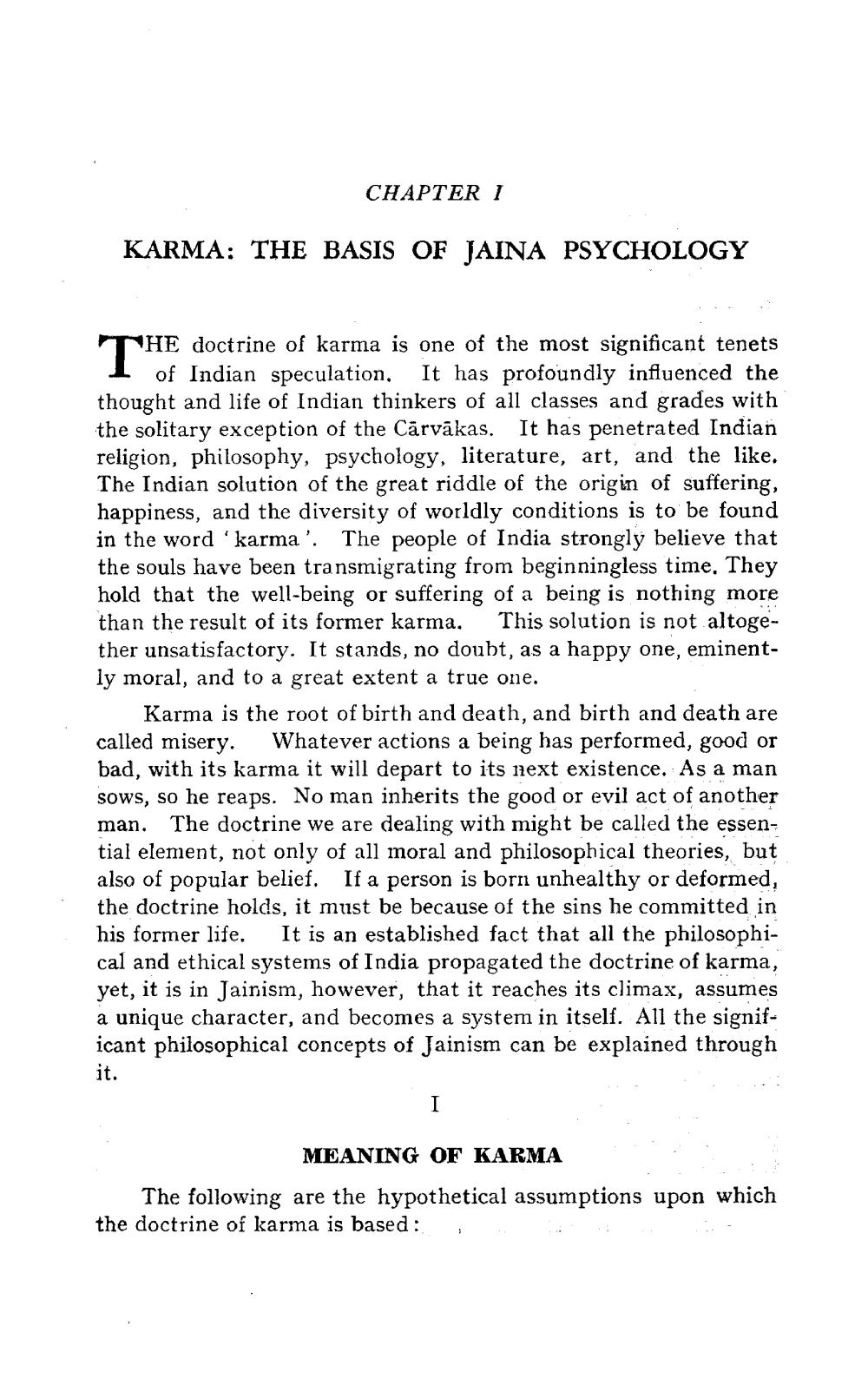________________
CHAPTER I
KARMA: THE BASIS OF JAINA PSYCHOLOGY
THE doctrine of karma is one of the most significant tenets
1 of Indian speculation. It has profoundly influenced the thought and life of Indian thinkers of all classes and grades with the solitary exception of the Carvākas. It has penetrated Indian religion, philosophy, psychology, literature, art, and the like. The Indian solution of the great riddle of the origin of suffering, happiness, and the diversity of worldly conditions is to be found in the word 'karma'. The people of India strongly believe that the souls have been transmigrating from beginningless time. They hold that the well-being or suffering of a being is nothing more than the result of its former karma. This solution is not altogether unsatisfactory. It stands, no doubt, as a happy one, eminently moral, and to a great extent a true one.
Karma is the root of birth and death, and birth and death are called misery. Whatever actions a being has performed, good or bad, with its karma it will depart to its next existence. As a man sows, so he reaps. No man inherits the good or evil act of another man. The doctrine we are dealing with might be called the essential element, not only of all moral and philosophical theories, but also of popular belief. If a person is born unhealthy or deformed, the doctrine holds, it must be because of the sins he committed in his former life. It is an established fact that all the philosophical and ethical systems of India propagated the doctrine of karma, yet, it is in Jainism, however, that it reaches its climax, assumes a unique character, and becomes a system in itself. All the significant philosophical concepts of Jainism can be explained through
it.
MEANING OF KARMA
The following are the hypothetical assumptions upon which the doctrine of karma is based : ;




